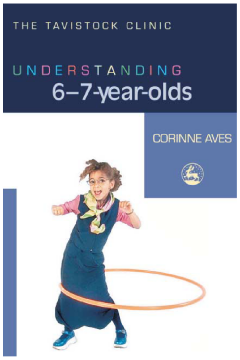
Additional Information
Book Details
Abstract
What challenges do 6-7-year-olds face as they learn new skills and face different social situations? How do their perceptions of the world change? How can we best support them in their move towards greater independence?
This accessible book provides a wealth of information to help parents, educators and carers better relate to children at this exciting, yet demanding, stage of development. From the new-found sense of rivalry between siblings or classmates, to the anxieties children feel when making new friends, Corinne Aves offers guidance on encouraging children's development and helping them to cope with changing expectations of their behaviour. She discusses the various struggles in these children's lives – such as the conflict between a child's continuing desire to please his parents and the pressure to follow the leads of his friends – and gives tips for supporting children's increasing understanding of morality. Chapters on both school and family life explain the need for discipline and order in 'middle childhood', while specific areas of development such as reading skills and learning difficulties are addressed with sensitivity and insight.
Understanding 6-7-Year-Olds will prove an enlightening read for anyone hoping to better understand children at this important stage of their lives.
Clearly based on a strict psychoanalytical perspective, this UK book is also grounded in the everyday experiences of children and informed by a lively commitment to their well-being... Not only a useful tome but also humane, intelligent and endlessly thought-provoking.
Youthinmind.co.uk
Aves, a child psychotherapist at the Tavistock Clinic, describes the experiences of six and seven year olds and how parents and educators can understand them and help them develop. In this slim volume, she explains their changing perceptions of themselves, how they understand their role in the family, school experiences and social interactions, learning to read, and their unique anxieties.
Book News
Corinne Aves BA, PGCE, CertEdPsych, MACP is Consultant Child Psychotherapist at The Tavistock Clinic Child and Family Department. The Tavistock Clinic has an international reputation as a centre of excellence for training, clinical mental health work, research and scholarship. Written by professionals working in the Child and Family and the Adolescent Departments, the guides in this series present balanced and sensitive advice that will help adults to become, or to feel that they are, “good enough” parents. Each book concentrates on a key transition in a child's life from birth to adolescence, looking especially at how parents' emotions and experiences interact with those of their children. The titles in the Understanding Your Child series are essential reading for new and experienced parents, relatives, friends and carers, as well as for the multi-agency professionals who are working to support children and their families.
As my youngest child is just coming up to her sixth birthday I was hoping to gain a new insight into her world with this book. I wasn't disappointed, as a Childcare provider we aim to treat all children as individuals but most of our training seems to be aimed at the 0-5 age range. There is a tendency to feel that older children are moving along happily and unless there are any obvious problems they can be slightly overlooked. This book was fascinating explaining the physical and mental changes that children undergo during this time. Moving from being a young child with a belief in the magical side of life to an independent learner finding their way in the world. Corinne Aves has observed children at school and during play and includes anecdotes from home as well to illustrate her points.
Written in a friendly, approachable style this book would be suitable for parents, however I feel it is aimed the key stage one teachers more specifically.
National Childminding Association
Table of Contents
| Section Title | Page | Action | Price |
|---|---|---|---|
| Acknowledgements | |||
| Introduction | |||
| The role of video in participatory development | |||
| Participant observation in Ky Nam | |||
| Conflict: the private and the public | |||
| Re-presentation and advocacy | |||
| Typhoons and evaluations | |||
| Lessons learned - and the way forward | |||
| Notes | |||
| Sources and further reading. |
